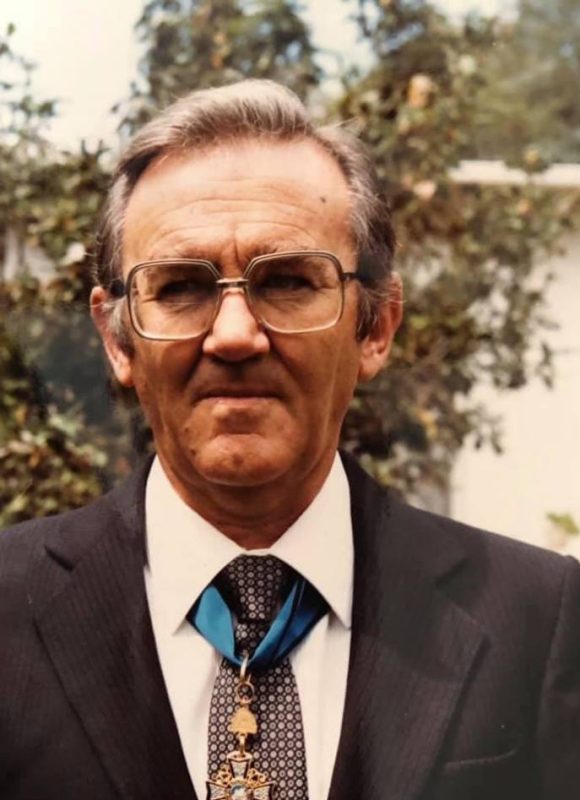PIONEER
Professor Pieter de Lange

Politician | Professor of education | Cultural commentator
Born: 27 February 1926 Died: 9 April 2019
"The abolition of statutory discriminatory measures must not be seen as concessions but as a prerequisite for survival … The majority of the government members will indeed be black, but the system and procedure operated in such a way that all the groups can participate effectively and not be dominated by one group … the exclusion of effective black power-sharing in political processes at the highest level is a threat to the white man which cannot be countered by maintaining the status quo or by a further consolidation of power in white hands."
Who is
Professor Pieter de Lange?
Afrikaner Broederbond Chairperson, academic, educationalist, and negotiator.
Professions
and Roles
Vice-Rector of the Goudstad College of Education in Johannesburg; Rector of the Potchefstroom College of Education in Potchefstroom; Rector of the Randse Afrikaanse Universiteit (RAU), now University of Johannesburg; Afrikaner Broederbond Chairperson.
Best Known For
De Lange was the Chairperson of the Afrikaner Broederbond who first decided to meet with the African National Congress (ANC) in May 1986. Later that year, he wrote an article called Basic Political Conditions for the Continuing Survival of the Afrikaner which called for reforms and the establishment of a democratic order in South Africa.
Life highlights
- De Lange studied at the University of Pretoria, obtaining a BA (Law) and a B.Ed. He then studied an M.Ed and a PhD at RAU, now University of Johannesburg.
- De Lange was employed as a lecturer at the College of Education at the University of Potchefstroom between 1961 and 1966. He later worked in government for the then Transvaal Education Department between 1966 and 1969 as a researcher.
- De Lange became Vice Rector of the Goudstad College of Education in Johannesburg between 1967-1969.
- In 1969, de Lange was appointed as Rector of the College of Education at the University of Potchefstroom.
- In 1979, de Lange was appointed as the Rector of RAU, his alma mater.
- In 1981, de Lange chaired a commission investigating special needs learning.
- At the end of his term as Rector, de Lange chaired the Human Sciences Research Council between 1988 and 1995.
- De Lange served as Chairperson of the Afrikaner Broederbond, a white male Afrikaner secret organisation between 1984 and 1994. During his time as a leader of the organisation, and in a period where the white regime was violently clamping down on the struggle for democracy, he was the first Chairperson to meet with the ANC-in-exile. De Lange met with Mbeki in New York in 1986, and over the course of a five-hour meeting, they discussed Afrikaner minority rights under a democratic system with a Bill of Rights.
- Later that year, De Lange wrote an article called Basic Political Conditions for the Continuing Survival of the Afrikaner which called for political reforms and the establishment of a democratic order in South Africa. This was circulated to the 17 000 Broederbond members and formed a working document outlining the need for a negotiated settlement.
- De Lange attended the Dakar Conference between 9 and 12 July 1987, where talks between liberal Afrikaners and the ANC occurred for the first time.
IN THEIR OWN WORDS
“Look, we Afrikaners thought we needed many things to secure our future: segregated living areas, no mixed marriages and all that. We thought if we didn’t have them, this black continent would swallow us up and the Afrikaners would cease to exist as a people. But the reality is that we can remove the Group Areas Act tomorrow and it’s not going to make any difference … we will wake up one day and realise that nothing has changed, that we are all still all right, we’ve not perished as a people because the Group Areas Act is not there. That will open up the way to asking the question: Why do we need a white government anyway?”
– Pieter de Lange, in 1986 at his meeting with Thabo Mbeki
IN THE WORDS OF OTHERS
“De Lange had the courage to think the unthinkable, at a time when the Afrikaner mind had grown unused to experimental thought … None of this implied an acceptance of black majority rule; indeed, the document ruled out the kind of one-man, one-vote democracy born in 1994. It spoke of special representation for (racial) groups, group vetoes, and aggressive devolution of power … The plan was for whites to remain in the engine room of power, even if the skipper was black. Yet the document remained a shocking and revolutionary denial of the premise which had underpinned decades of National Party Rule, that law alone could secure Afrikaner survival.”
– Patti Waldmier, journalist and historian
“When De Lange spoke about how Afrikaners were more anxious about losing their cultural identity than their economic or political power in a democratic South Africa, Mbeki seemed to understand. By his own admission, something was activated in Mbeki by his encounter with Pieter de Lange. It was this meeting, he told me, which prepared him for his subsequent dealings with the National Party government – for he understood for the first time how threatened Afrikaners were and how they needed to be reassured.”
– Mark Gevisser, author
“De Lange did indeed lobby for reform, but it was a cautious, tentative exercise conducted far from public view in the secret inner cells of the brotherhood and with its main concern being how to manage reform without jeopardising the security and identity of the Afrikaner volk. But cautious though it was, given the Broederbond’s history and status within the Afrikaner nationalist establishment, it was important in getting the chemistry of change under way … ‘The lack of mutual trust is due to the lack of meaningful contact,’ [De Lange] said. ‘There is a tremendous need for more contact to build up mutual understanding.’”
– Allister Sparks, writer
